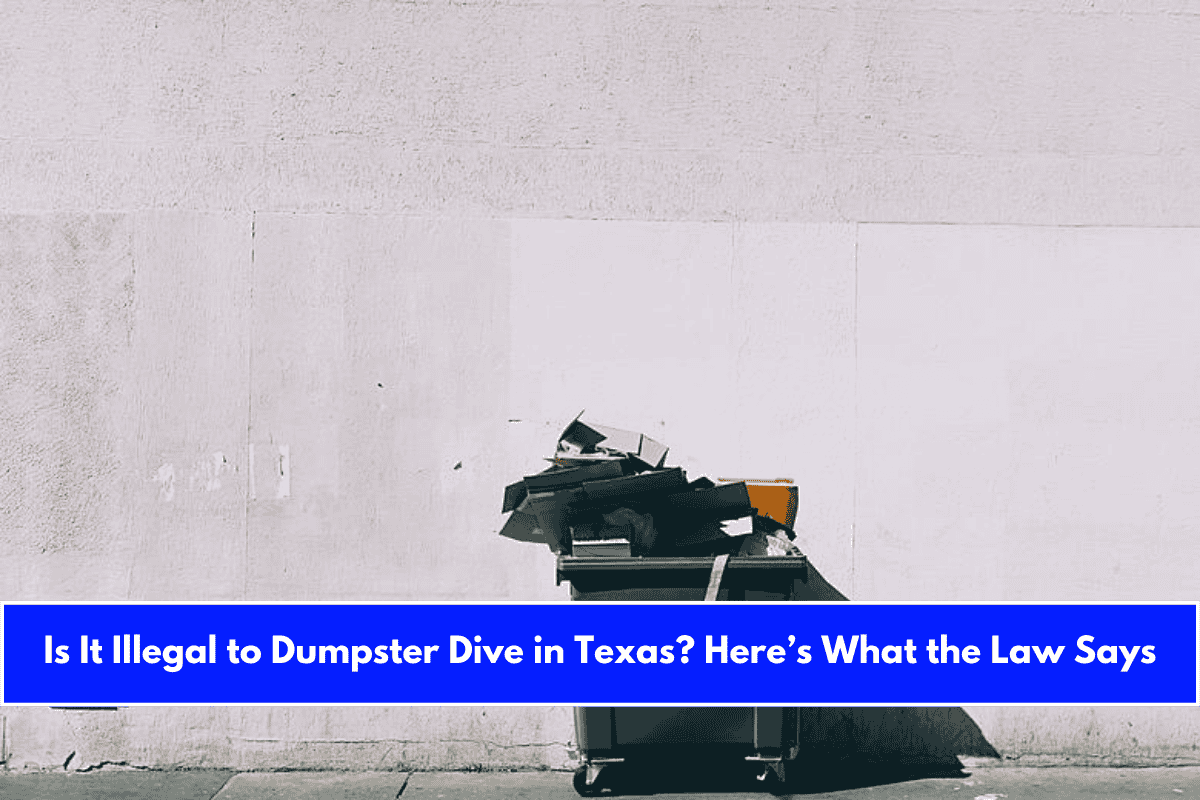Dumpster diving—searching through commercial or residential trash for usable items—has become increasingly popular in Texas. But is it legal? The answer is nuanced and depends on where you are and whose trash you’re rummaging through.
Statewide Legality: Public vs. Private Property
In Texas, dumpster diving is generally legal on public property. This means you can search through trash that is accessible from public spaces, such as dumpsters on public land or garbage set out on the curb for collection.
This legality is rooted in the 1988 U.S. Supreme Court case California v. Greenwood, which found that once trash is left in a public place, there is no reasonable expectation of privacy, making it fair game for anyone—including dumpster divers.
However, dumpster diving becomes illegal if it involves trespassing. Most dumpsters behind businesses, apartment complexes, or within fenced or gated areas are on private property.
Entering these areas without permission is considered trespassing under Texas law and can lead to criminal charges. If you need to go past a fence, gate, or “No Trespassing” sign, or if the dumpster is locked, you are likely breaking the law.
Local Ordinances: City-by-City Differences
While Texas state law does not prohibit dumpster diving on public property, many cities and counties have their own ordinances that may restrict or ban the practice. For example:
- Midland and Odessa: Dumpster diving is a city ordinance violation and can result in a misdemeanor charge with fines up to $2,000.
- Corpus Christi: Dumpster diving is illegal in both commercial and municipal dumpsters, and violators can be arrested and prosecuted.
- Fort Worth: No specific city or county ban, but trespassing on private property is strictly enforced.
- Houston: In 2013, the city legalized dumpster diving in public places, but private property restrictions still apply.
Because local laws vary, it is crucial to check the regulations in your specific city or county before dumpster diving.
Potential Legal Consequences
Dumpster diving on private property without permission can lead to:
- Trespassing charges, which range from Class C misdemeanors (up to $500 fine) to Class A misdemeanors (up to $4,000 fine and a year in jail), depending on the circumstances.
- Possible theft charges if you remove items from a dumpster on private property.
- Additional penalties if you tamper with locks or signs, or if you create a mess and are cited for disorderly conduct or illegal dumping.
Key Points for Dumpster Divers in Texas
- Legal on Public Property: Dumpster diving is generally legal if the dumpster is on public property and not otherwise restricted by local ordinance.
- Illegal on Private Property: Entering private property to access a dumpster without permission is trespassing and can lead to criminal charges.
- Local Laws Vary: Some cities ban dumpster diving outright, even on public property, so always check local ordinances.
- Obey Signs and Locks: Respect “No Trespassing” signs, locked dumpsters, and fenced areas—these are clear legal boundaries.
- Be Respectful: Avoid making a mess, and leave the area as you found it to reduce the risk of complaints or additional charges.
Dumpster diving is not illegal statewide in Texas as long as you stick to public property and respect local ordinances. However, trespassing on private property or violating city-specific bans can get you fined or arrested. Always check local laws, and when in doubt, ask for permission before diving in.
Sources:
- https://kfox95.com/dumpster-diving-in-texas/
- https://radiotexaslive.com/true-or-false-its-legal-to-dumpster-dive-in-texas-austin-tx/
- https://kisselpaso.com/dumpster-diving-in-texas/
- https://www.tomislavnews.com/is-dumpster-diving-legal-in-corpus-christi-texas/
- https://www.yahoo.com/news/am-allowed-dumpster-dive-fort-183441705.html











Leave a Reply